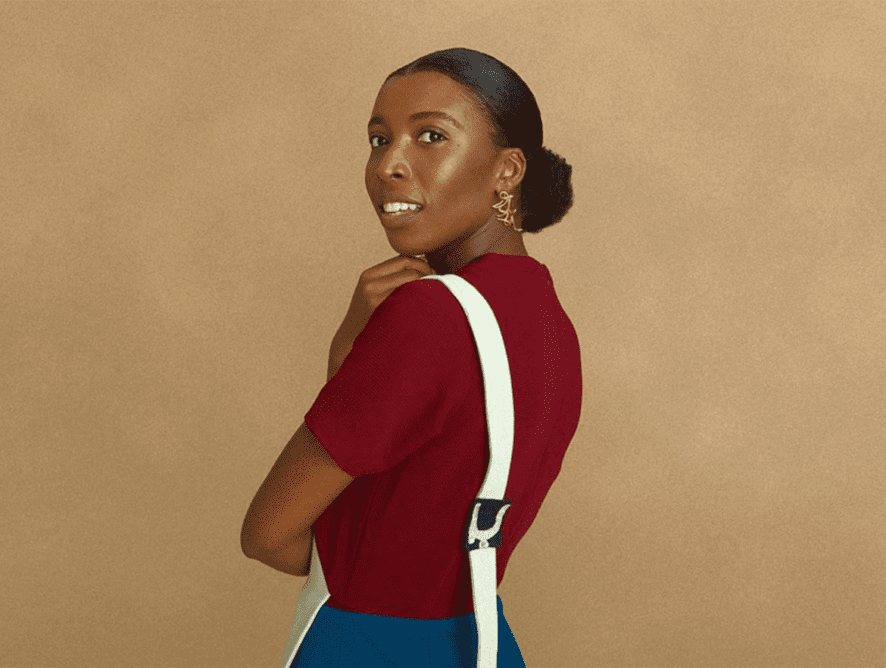As an entrepreneur with a new idea, before the investors and capital come, you become your own biggest hype man.
When Amira Rasool first launched The Folklore Group — an e-commerce retailer for African fashion brands — in 2018, she full-heartedly believed in her platform with the mission of helping African designers gain more support from retailers and consumers around the world.
Coming from the world of fashion and deeply familiarizing herself with African clothing after traveling to South Africa, Rasool recognized that she possessed the network, knowledge, and passion to solve the issue of the lack of direct-to-consumer platforms across the continent. Her realization turned to action once she envisioned just how wide the door of economic opportunities could be for African designers with her creating a platform to make it happen.
“They don’t need another magazine article if they can’t link back to a website where customers can purchase [their brand.] I didn’t want to just be there for helping people discover these brands,” Rasool told AfroTech. “I wanted to make sure that people could actually shop, financially support these brands, and have access to amazing products that you can’t find in other places. And really make people aware that this is the next frontier of brands.”
Working From The Ground Up
Rasool was so dedicated to the point that she ran The Folklore by herself for two and a half years. While she was juggling freelance writing and getting her master’s at the time that things had just begun, the one-woman show led all of the company’s moving parts — along with occasional support from her mother and interns.
Attempting to learn the ropes on her own led her to a standstill in leveling up her platform. But in 2021, things turned around for the better when she became a part of the Techstars Seattle accelerator program. Her experience as a writer is what initially shaped her vision, but the program was the guidance she needed to really hit the ground running.
“I couldn’t raise any money until I basically got into Techstars and they actually were just like, ‘Well, you’re not doing it right.’ And then they taught me how to do it. Then, I did it within a few months and I was like, ‘Oh, wow,’” she said. “It’s really just having that little bit of knowledge of ‘This is how you do it,’ which dramatically changed the outcome of this company.”
Rasool continued: “Also, I’ve always been someone who’s asked for help, but I don’t think I even knew the questions to ask to really understand what I was doing wrong and why I couldn’t raise any money. So, I think the Techstars experience was really the thing that changed the trajectory of this company for sure and the Techstars investment as well.”
Pre-Seed Funding
Now, The Folklore Group has raised a $1.7 million pre-seed funding round led by Slauson & Co. for the launch of The Folklore Connect — an expansion of the overarching platform — according to a press release shared with AfroTech.
Fellow investors included Fearless Fund and WNBA star Nneka Ogwumike. The announcement makes the 26-year-old one of the youngest Black women to raise more than $1 million in a pre-seed round for a fashion and lifestyle brand.
The Folklore Connect
The press release shares that the new wholesale e-commerce platform includes “The Folklore Marketplace, a consumer shopping aggregator that will replace the company’s original direct-to-consumer platform, and The Folklore Edit, an online media platform that will feature industry analysis, interviews and news about the African and diasporic design industry.”
The new funding is to build a conglomerate of B2B, consumer and media products for retailers to truly be equitable and diversify their selections by meeting the brands where they are or reach a common ground which is what The Folklore Connect is all about, Rasool describes.
“We have the interest of the retailers and how they typically do business and the interest of the brands and how they typically do business,” she said. “And we’ve combined that into a product that will satisfy both parties and they might have to adjust certain ways of how they’re working, but at the end of the day, they’re going to be able to get product quicker. They’re gonna be able to make better buying decisions and be able to sell great products to their customers and make money. That’s the biggest thing from the retail side.”
She continued: “On the brand side, they’re gonna be able to increase the amount of wholesale orders they receive. They’re going to be able to have their money from the retailers on time and sent to them in a convenient way. That’s really the biggest value-added in terms of discovery and being able to transact in a way that financially benefits both parties and gives customers what they want.”

